Tired of sore muscles slowing you down? Forget fancy supplements for a minute—London’s best-kept secret for turbocharging sports performance is massage therapy. There’s a reason top athletes swear by trusted therapists. We’re not just talking basic rubdowns. These are laser-focused treatments, designed to push your body’s recovery and output to new levels. Picture crossing that finish line faster, scoring bigger, or just feeling unstoppable at the gym. Want the edge that most of the competition misses? This is where it starts.
Direct Answer: How Can Top Massage Therapists in London Enhance Your Sports Performance?
London’s top sports massage therapists boost performance by speeding muscle recovery, reducing pain, preventing injuries, and enhancing flexibility. With targeted treatments based on each athlete’s needs, these experts help everyone from weekend warriors to pros train harder, recover smarter, and perform at their absolute best—right here, in the gyms, clubs, and clinics of London.
Key Points
- Sports massage therapy reduces muscle soreness and helps prevent injuries
- Targeted massage increases flexibility and range of motion
- Top clinics in London tailor sessions to each client’s needs
- Sessions can include deep tissue work, trigger point therapy, and stretching
- Regular massage improves circulation, reduces stress, and boosts performance
Comprehensive Guide to Sports Massage Therapy in London
Picture this: you wrap up an intense football match or just smashed a spin class, but hours later, your legs ache, and you’re already dreading the morning stiffness. Or maybe you love pushing your limits but have seen injuries pop up at the worst times. This is where London’s advanced sports massage scene shifts gears for you. Sports massage isn’t just for pro athletes. Coaches, runners in parks, even folks like me taking Milo (my wildly energetic dog) for marathons around Hampstead Heath—anyone stepping up their physical game can benefit big time.
The magic kicks in when you combine skilled therapists, deep knowledge of anatomy, and personalised treatment plans. In London, we’ve got a diverse mix of clinics—from slick NHS-backed wellness centres to boutique gyms and mobile therapists who’ll show up wherever you are (yes, you can get a killer leg massage in your living room between Teams calls). These professionals know their stuff. A session can involve targeted pressure to break down knots, specific stretches to lengthen tight muscles, or gentle flushing motions to boost circulation. Even the way you get up after a session can influence your performance later.
The science backs it all up. A study out of King’s College London tracked runners after long-haul training and found sports massage shortened recovery time by over 30%. It’s not just about less pain; it’s more power back in your stride. Plus, regular sessions train your brain to recognise what real, healthy muscle function feels like, so you catch overtraining or poor habits early. Week after week, London’s sporting crowd proves that peak performance isn’t just about pushing—it’s about smart recovery, and massage is at the heart of that.
People see real, tangible gains. Swimmers at the Serpentine, rugby players in Richmond, and boxers in Poplar all notice fewer strains and better stamina after making sports massage a staple. It becomes less of an indulgence and more like strategic maintenance—like taking your bike to the mechanic before a big ride. After all, you wouldn’t skip oiling the chain and expect a smooth race, right?
Definition and Context: What Is Sports Massage Therapy and Why Should You Care?
Sports massage therapy is a specialised style of bodywork designed to help athletes and active people perform, recover, and prevent injuries. This isn’t your average spa massage—the vibe is more about function than fluff. Therapists use a combo of techniques: kneading, friction, deep tissue, stretching, and even quick warm-up moves to keep your muscles primed for action.
It matters because pushing your body—whether you’re training for the London Marathon, cycling the Thames Path, or showing up for weekend five-a-sides—causes microscopic tears in your muscle fibres. Left unchecked, these build up into pain, stiffness, or even major injuries that sideline you for weeks. Sports massage speeds up the body’s repair process, flushes out toxins, and smooths out scar tissue before trouble sets in. Imagine spotting a slow puncture before a flat—sports massage is your pit stop.
There’s a reason why Premier League teams keep massage experts on payroll, and why major clinics in Marylebone or Shoreditch are filled with both athletes and busy urbanites. The body doesn’t distinguish between ‘athlete’ and ‘average Joe’ when it comes to overuse. If you train hard, even casually, your muscles deserve this level of care. And here in London, the culture of investing in smart recovery is booming.
Benefits of Sports Massage Therapy: More Than Just a Rubdown
Let’s talk real-life payoffs: sports massage isn’t just about feeling good (though, yes, it feels amazing). The benefits stack up fast for those who get regular treatments. First up: muscle recovery rockets ahead. If you’ve ever hobbled down the stairs after squats, you’ll appreciate massage helping break up lactic acid and speeding up tissue repair. Next, improved circulation gets oxygen to muscles, helping them rebuild and fight fatigue. Better circulation also means less swelling after a tough session—and that’s a game changer if you’re used to doing two or more workouts a week.
Then there’s flexibility. Many therapists in London build stretching right into a session. They pinpoint which groups are tight (think hamstrings for runners, shoulders for swimmers) and work on lengthening them. That means fewer pulled muscles and more graceful, confident movement whether you’re sprinting at Regent’s Park or powering through a Pilates class in Soho. Chronic pain and old injuries? Massage breaks down scar tissue and keeps everything moving smoothly—sometimes even when physio hasn’t cracked the code.
Another unexpected plus: massage lowers stress hormones like cortisol. Athletes sometimes overlook the way nerves and stress slow down their results. A pro therapist creates an environment (from beep-free treatment rooms to playlists that actually chill you out) where your body can drop tension, leaving you sharper and more relaxed for your next game or training. And let’s not skip sleep. Data from University College London found that regular massage helped fitness buffs fall asleep faster and wake up less groggy—even when their alarms went off at dawn for park runs.
If you listen to testimonials from everyday Londoners—cyclists, CrossFitters, dog walkers, or even desk jockeys getting back into sport—they’ll mention how their performance steadily improved once massage became a non-negotiable part of their routine. Injuries take a nose dive, and confidence takes off. That’s the sort of ROI you just won’t get from popping painkillers or foam rolling in your kitchen.
Types of Sports Massage Therapy Available in London
Sports massage in London comes in more flavours than you might think, and choosing the right one can make all the difference. Here’s a quick rundown:
- Pre-event massage: Short, energising, and focused on warming up muscles before you hit the field or the track.
- Post-event massage: A bit gentler, helps flush out waste products and bring muscles back to their best.
- Deep tissue therapy: For those persistent knots or injuries that don’t quit. Not always relaxing, but super effective.
- Trigger point therapy: Precision work on specific tight spots causing pain elsewhere (ever felt a shoulder knot that somehow hurts your back? That’s what this tackles).
- Myofascial release: Focuses on the connective tissue, perfect for those battling long-standing stiffness or past injuries.
- Active release therapy: Involves movement with pressure—often part of rehab for chronic tension spots.
- Sports stretching: Sometimes added as a dedicated section at the end of a session or even as standalone mini-treatments.
If you’re in areas like Clapham, Camden, or Shoreditch, you’ll find therapists blending several of these approaches, often combining them with high-tech extras like hot stones or percussion tools. Some top clinics also offer mobile sports massage, where therapists turn up at your gym, home, or hotel room—very handy if you play in leagues across Greater London or have a packed work schedule. And if you’re not sure what you need, most professionals offer an assessment at the start of your session. They’ll talk through your activity levels and history, then build a plan right there, so you get exactly what your body needs, not just a generic routine.
Ultimately, variety isn’t just about the style of massage—it’s about who you work with. London’s scene includes ex-athletes, physio-trained therapists, and even a few who double as stretch experts or yoga instructors. You can always ask about specific training and background (and you should!). That’s how you find someone who genuinely gets sports massage London and can take your performance up a notch.
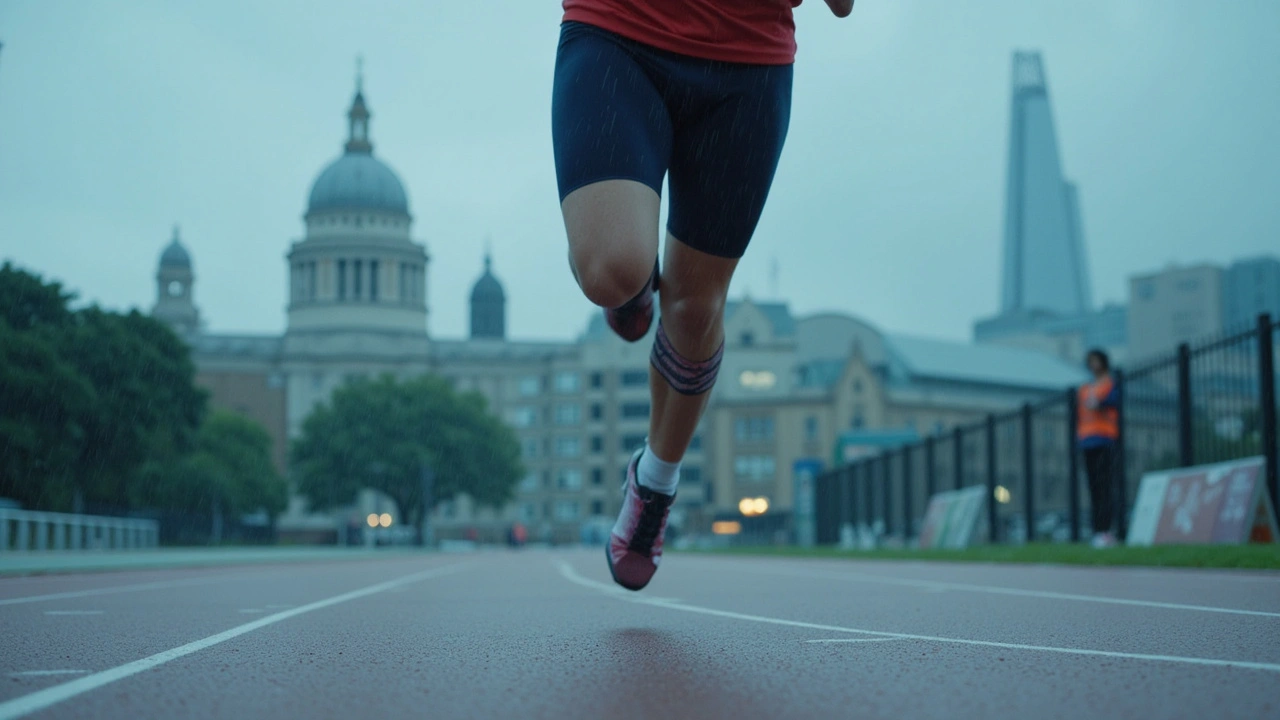
How to Find Quality Sports Massage Services in London
Finding the best sports massage therapist in London can feel like searching for a needle in a haystack—there are hundreds of clinics and solo therapists claiming to be the best. Here’s how you avoid the duds and find someone who really delivers.
Start with qualifications. Look for therapists registered with professional bodies like the Sports Massage Association (SMA) or the Complementary & Natural Healthcare Council (CNHC). These folks have to meet strict standards, which means better technique and clearer safety protocols. After that, location matters. If you’re in the thick of Central London, you’ll find high-end clinics in Marylebone, Fitzrovia, and Canary Wharf—handy for squeezing in a session around work. Out in leafy suburbs like Richmond or Hampstead, you’ll find therapists working from wellness studios or even from home-based treatment rooms (often warmer, quieter, and sometimes cheaper).
Word-of-mouth is golden. Chat with team mates, coworkers, or gym staff—they’ll know who’s actually got magic hands. And check out real reviews on platforms like Google, Treatwell, or even Instagram (yes, lots of top therapists share before-and-after stories or client shout-outs there). Another smart move: ask about therapist specialities. Some focus on runners, others work mostly with weightlifters, and a few have backgrounds in physio or injury rehab. It’s perfectly normal to try a few different therapists before you find “the one.”
Time of day also plays a role. Popular slots (like after work or Saturday mornings) get snapped up fast, so try booking during less busy hours for easier scheduling and sometimes a better price. Some clinics offer package deals, which can save you money if you go regularly. And don’t discount mobile services—these are great if you’re tight on time or want to maximise relaxation after your session. If you like, plug your postcode into one of the bigger wellness booking platforms to see what’s trending in your area right now.
Visual tip: Use online maps to pinpoint where top therapists are based. Several booking apps have interactive maps, making comparison shopping simple. That way, you can scan for the right mix of skills, reviews, and proximity before you commit.
What to Expect During a Sports Massage Therapy Session
First off, forget the idea of a generic back rub with mood lighting. Your session will start with a quick chat—your therapist runs through your activity levels, recent injuries, and what’s bothering you. It’s a friendly, practical check-in, and everything gets tailored from there.
You’ll usually strip down to underwear (or sports kit—your call) and lie on a comfy massage table, often with towels covering everything not being worked on. Some therapists crank up a playlist or ask if you want silence—total legend, in my book. Then the session begins. The therapist uses different combinations of firm strokes, kneading, pinpoint pressure, and stretches. It sometimes feels tough, especially during deep tissue work, but you should always be able to communicate how much is too much. Good therapists constantly check in, adjusting as they go.
Expect focused attention on your problem areas. Got tight calves from too many sprints? Dodgy shoulder from tennis? They’ll zone in on those spots, incorporating both local work and broader movements to help everything function better together. Rather than rushing, the therapist might spend several minutes on a single stubborn knot or tension line. They’ll also talk you through any take-home stretches or warm-ups that’ll keep you on track between sessions.
Afterwards, most people feel incredibly loose and relaxed, but very occasionally there’s some mild soreness—especially if it’s been a while. Drinking lots of water and doing gentle movement helps this fade fast. Some regulars fit in quick gym visits on the same day, while others prefer a nap or easy walk to soak up the benefits. You’ll likely notice increased range of motion, lighter limbs, and a general boost in mood (yes, endorphins are real!).
Curious about the science? A 2022 study at Queen Mary University of London found that structured post-event massage sessions gave amateur runners a major confidence boost, reducing recovery-related anxiety by 27%. After a few sessions, you’ll probably start recognising which muscle groups give you trouble, and some therapists will jot notes for future reference, making ongoing progress tracking easy. Bonus: seasoned therapists teach you about posture and small tweaks to daily movement, so you keep improving even between clinic visits.
Pricing and Booking: Cost of Sports Massage Therapy in London
Pricing for sports massage in London runs a wide range. For a quick, focused 30-minute session in a no-frills gym or pop-up wellness van, you might pay around £35-£50. Standard 60-minute sessions at reputable clinics usually cost £65-£90, depending on location, training, and extras. High-end spots with specialist therapists and luxury amenities can run up to £120 for an hour, especially in places like Chelsea or the City. Don’t forget, booking during quieter weekday slots often shaves a bit off the price, and purchasing a block of 5 or 10 sessions can drop per-visit costs by up to 20%.
If you prefer in-home or mobile sessions (a lifesaver after team sports or a marathon), expect to pay a callout fee—usually £20-£40 on top of the regular rate. These are especially popular in places like Notting Hill or Canary Wharf, where professionals cater to busy execs or athletes with packed schedules. Most therapists now offer easy online booking; you just hop onto their website or a booking app, pick your slot, and boom, done. Some even send reminders and let you reschedule with a click, which is handy if your plans shift. Always check cancellation policies—most ask for 12-24 hours’ notice to avoid a fee.
Insurance tip: If you have private medical or health insurance, check if sports massage is covered under your “complementary therapy” benefits. Some companies reimburse up to a certain number of sessions per year. And don’t be afraid to ask about discounts—some clinics run loyalty schemes or share promo codes with local gyms.
Safety Tips for Sports Massage Therapy in London
Sports massage should help, never hurt. If you want the experience to be not just effective but totally safe, here’s what you need to know. First, always choose a therapist with recognised qualifications and, ideally, references. Reputable clinics display certificates, and you can double-check credentials with associations like SMA or CNHC online.
Before your session, tell the therapist about all your aches, injuries, medical conditions, and medication. Even small details (like a sore big toe or history of asthma) matter—they'll tailor your session so everything is safe. If you’re recovering from surgery, check in with your GP before booking a massage. Same goes if you’re on blood thinners or have any circulation issues—special protocols apply.
During the session, good therapists check in about pressure and pain regularly. Strong isn’t always better; if something burns or feels sharp, speak up right away. Afterwards, drink water and move gently—jumping straight into a heavy workout isn’t ideal, especially if it’s your first session in a while.
If you have allergies (to oils, creams, latex), mention them in advance. Many therapists stock hypoallergenic options, and some even go fragrance-free if that’s your jam. Hygiene is a top priority—you should always get a clean, well-ventilated treatment space, and fresh towels for every client. If you ever feel uncomfortable about anything, trust your gut and leave. True pros want you relaxed, informed, and in control at every step.
Comparison Table: Sports Massage vs. Deep Tissue Massage in London
| Feature | Sports Massage London | Deep Tissue Massage London |
|---|---|---|
| Focus | Performance & Recovery | Chronic Muscle Pain & Tension |
| Techniques Used | Pre/post-event, stretching, trigger point, myofascial | Slow, deep pressure, muscle stripping, friction |
| Target Clients | Athletes & Active Individuals | Anyone with Ongoing Pain or Stress |
| Typical Locations | Gyms, sports clubs, wellness centres, mobile | Spas, massage clinics, wellness centres |
| Session Extras | Tailored stretches, injury advice, training tips | Relaxation, stress relief, posture tips |
FAQ: Your Questions About Sports Massage Therapy in London Answered
- Is sports massage painful?
It can get intense if you’re tackling serious knots, but it shouldn’t be unbearable. Tell your therapist if the pressure is too much and they’ll adapt instantly. - How often should I book?
For serious athletes or those training hard (like marathon prep), once a week works well. For maintenance and general recovery, every 2-4 weeks is solid. - Will massage fix injuries?
It accelerates healing and prevents re-injury, but always check with your physio or GP for anything that involves broken skin or stress fractures. - How do I know my therapist is legit?
Look for SMA or CNHC registration, check reviews (especially from other athletes), and ask where they trained. - What should I wear?
Comfy underwear or short sports kit. You’ll be covered with towels throughout, and therapists work around your preferences for privacy and comfort. - Can massage help non-athletes?
Absolutely. If you walk a lot, do manual work, or just want to move and feel better, this works wonders for anyone active. - Any age limits?
People of all ages book sports massages in London, from teen footballers to older adults returning to exercise. Always mention any health considerations up front.
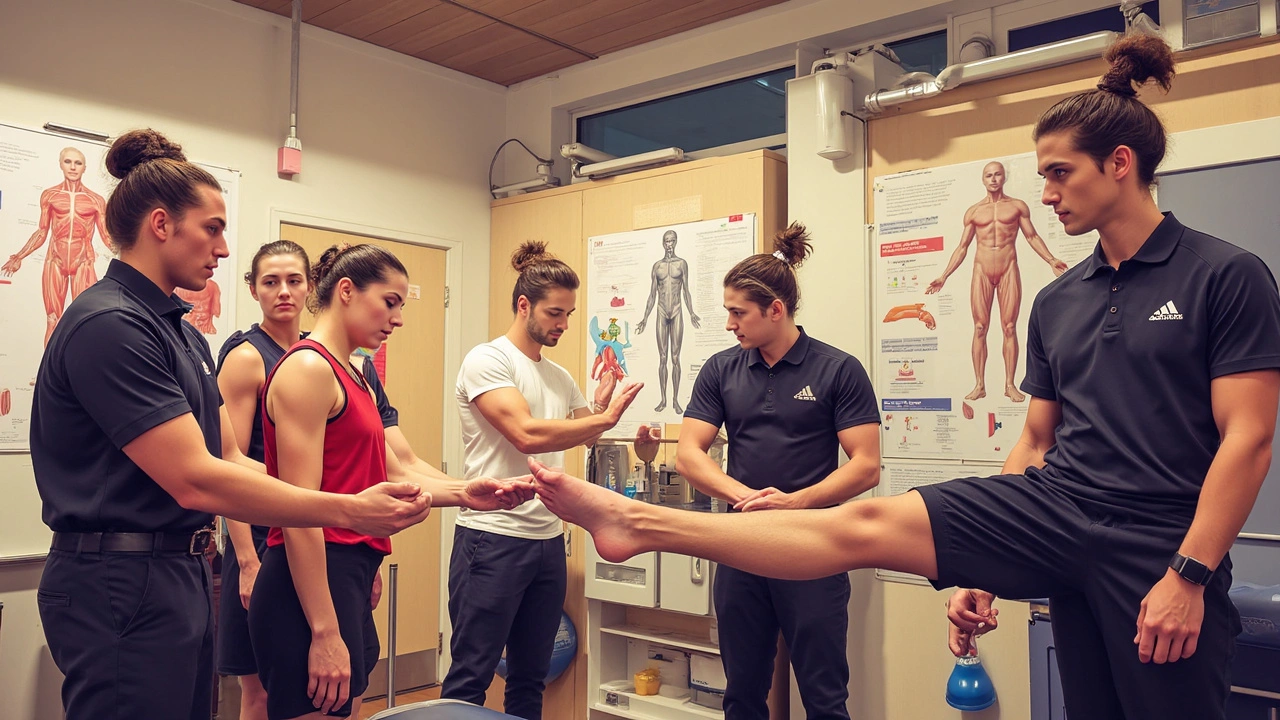
Ready to Level Up?
Smart recovery is the secret weapon of any successful athlete or active Londoner. Whether you’re gearing up for your first 10K or just want to play pain-free on weekends, booking a session with a top London sports massage therapist could be your game-changing move. Want to kickstart your best season ever? Book today and set your new personal best—your body will thank you for it.
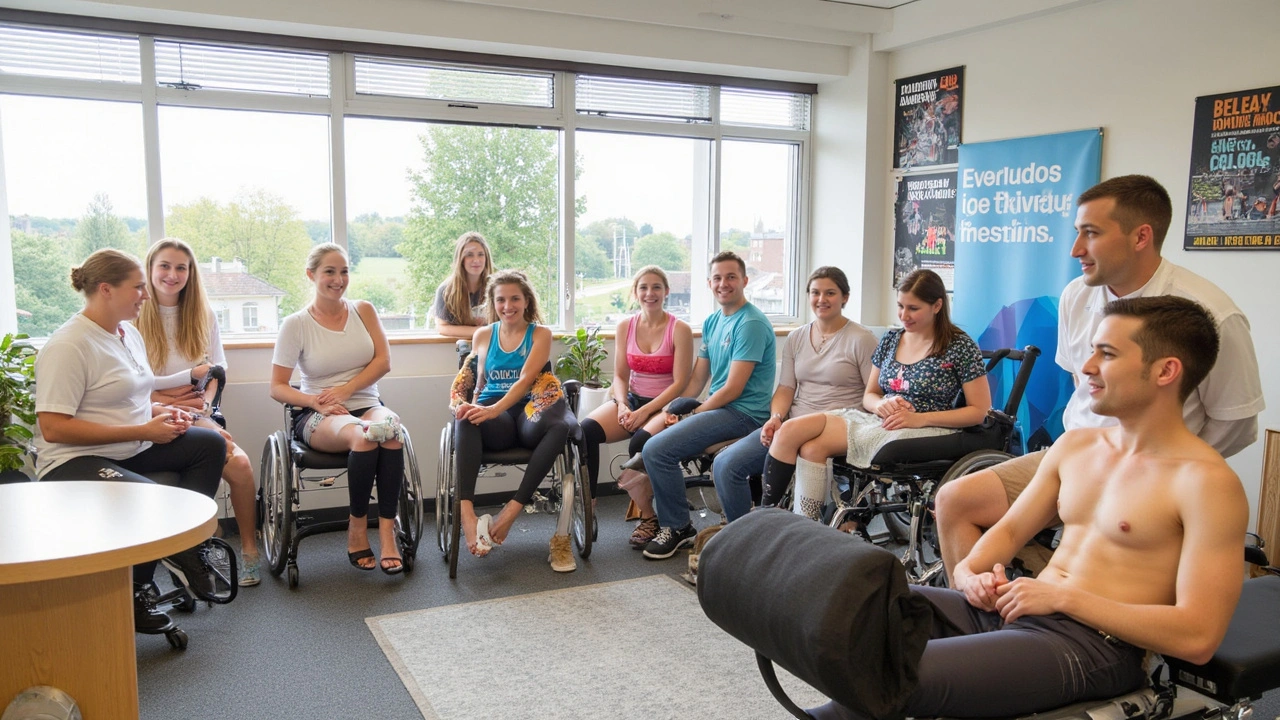
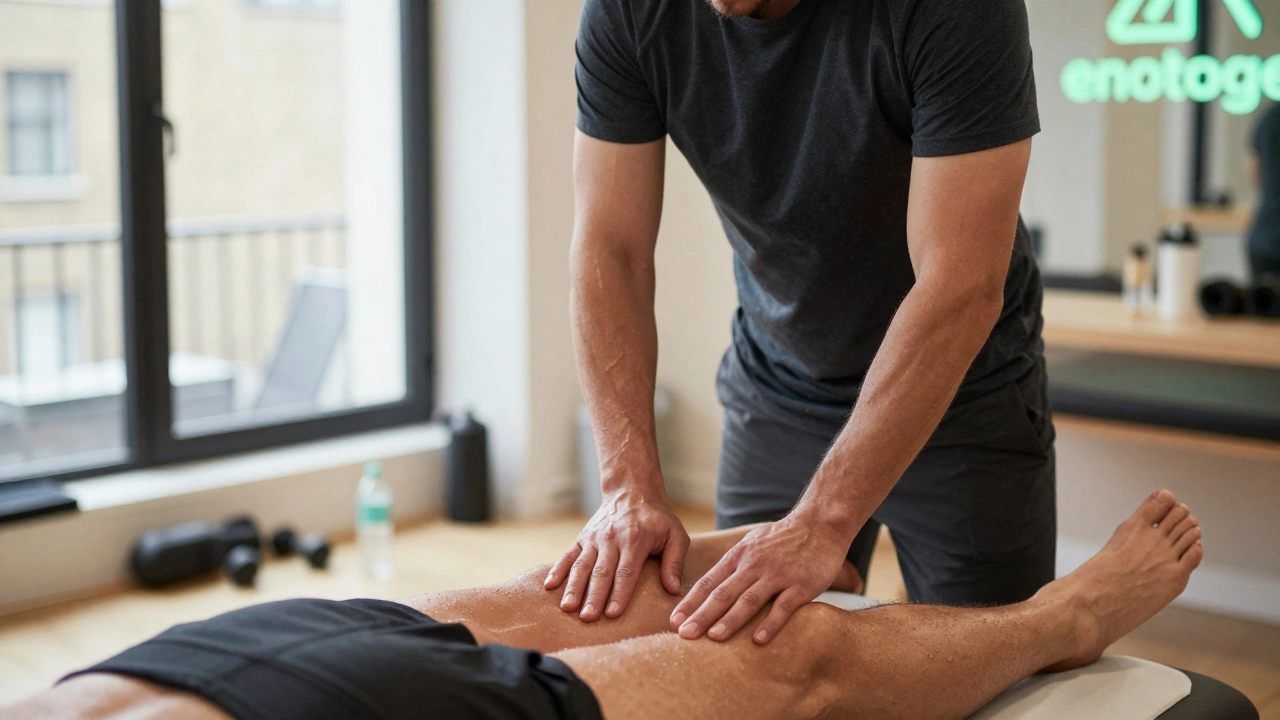

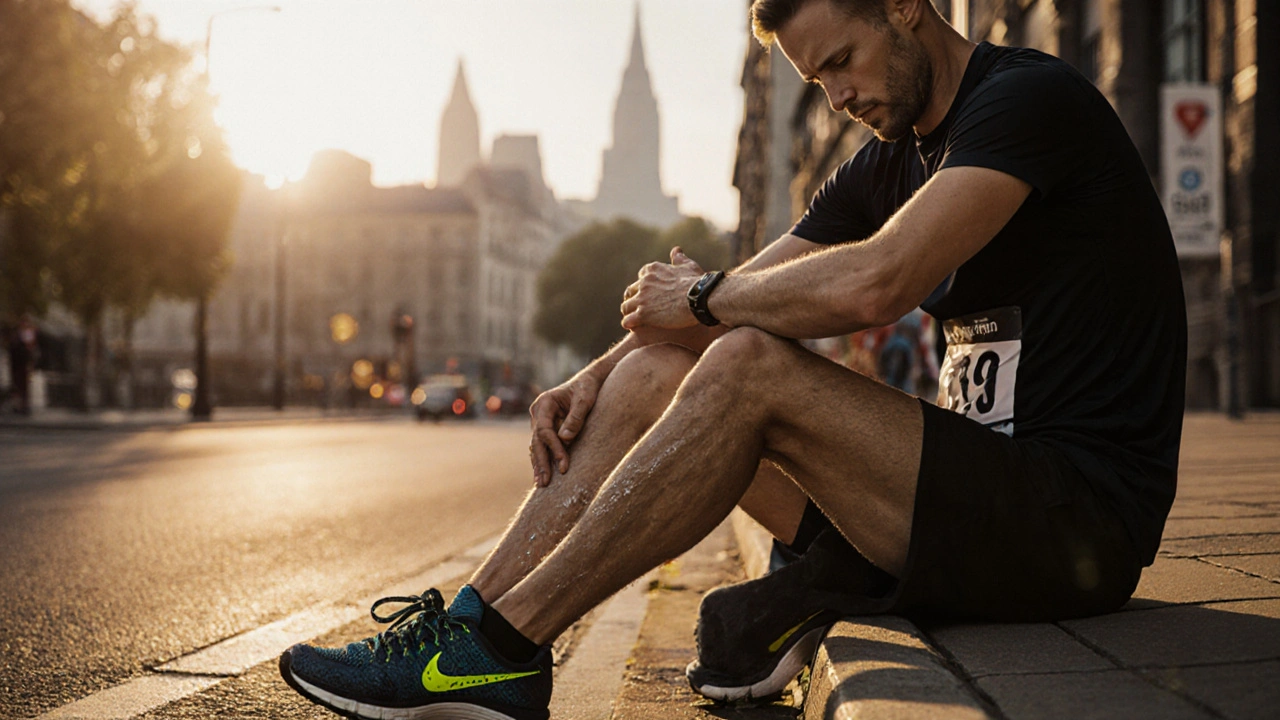
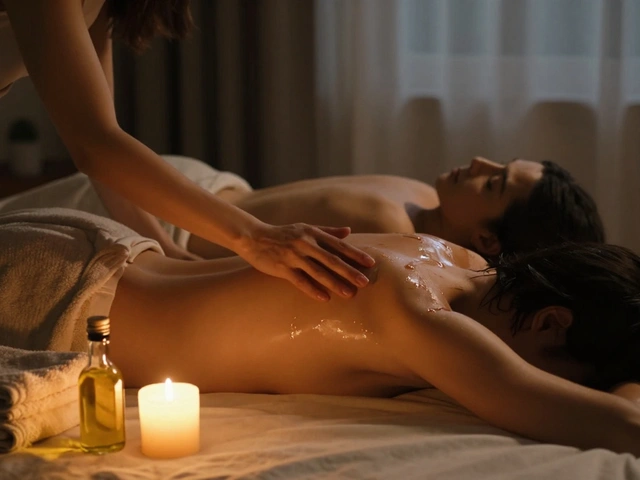
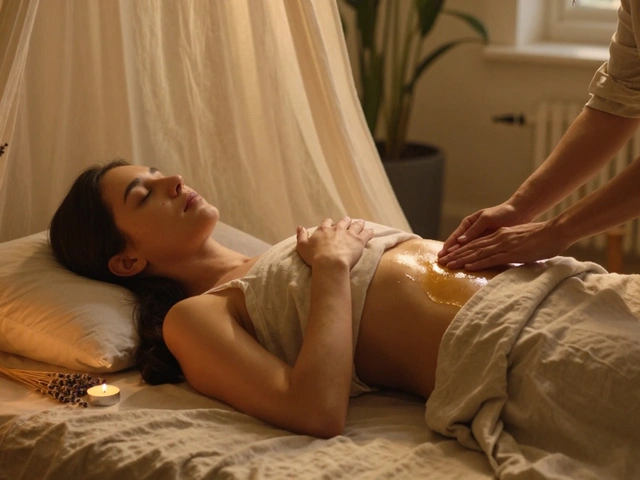
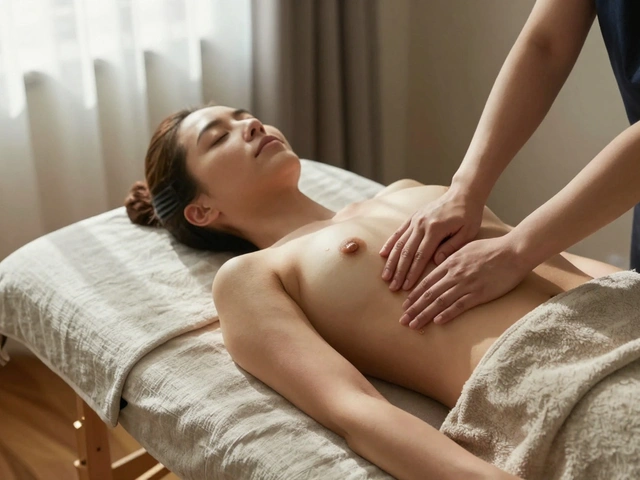
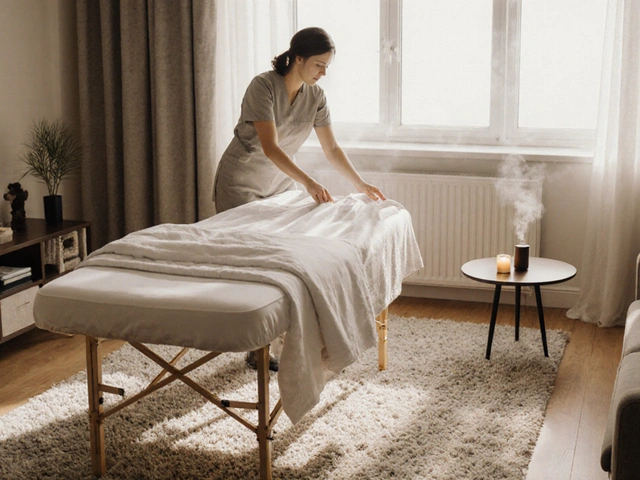
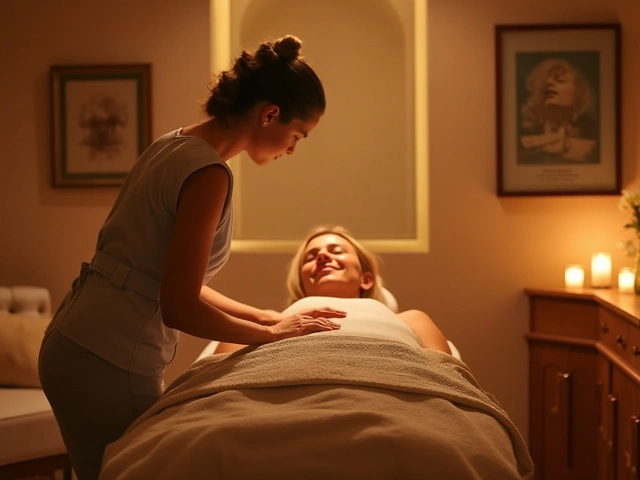
Michael Allerby
August 5, 2025 AT 07:00Oh man, I can't stress enough how transformative a good sports massage can be! Especially in a place like London where the sports scene is intense. These therapists not only help with recovery but also fine-tune your muscle performance to the max.
What fascinates me is how tailored each treatment is; it's not just one-size-fits-all. They really take into account the athlete’s unique needs and their sport-specific stresses.
I've seen players bounce back from injuries faster and actually hit new personal bests, credit goes to those targeted massage therapies. If you haven't tried it yet, you're seriously missing out on a hidden boost to your game.
Plus, the expertise some of these therapists bring to the table is next level. Kudos to them for keeping athletes on top of their game!
For anyone considering giving it a shot, just go for it—your body will thank you!
Nishad Ravikant
August 8, 2025 AT 07:13I've always been curious about the exact mechanisms behind sports massage therapy. Besides the obvious relief in muscle tension, how do these techniques actually accelerate recovery or boost performance?
Are there specific methods for different types of sports, say endurance runners versus weightlifters? The post mentioned expert techniques, and I'd love to understand what differentiates those.
Also, is there scientific research backing the effectiveness of these tailored treatments, or is it mostly anecdotal from athletes?
Really interested in how holistic and data-backed these therapies are, since that would influence how widely we can recommend them.
Marie Elizabeth
August 8, 2025 AT 23:53Thanks for this post! I've always felt curious about sports massage but never knew it was so specialized. 🌟
It's heartwarming to see how these therapists help prevent injuries and support athletes beyond just treating pain. Prevention is so key! 😊
I hope more people become aware that it's not only for professional athletes but can be valuable for hobbyists too. I think everyone could benefit from some expert care in their routine.
Does anyone here have recommendations for good clinics in London? I'd love to try it for my running and yoga sessions.
Really appreciate the focus on personalized treatments — that feels respectful and thoughtful to me. 💖
Devin Tankersley
August 11, 2025 AT 10:13Honestly, all this talk about sports massages feels like glorifying a bandaid. Yeah, maybe some tiny relief, but the system pushing these pricey treatments to athletes seems fishy. Like they wanna keep you dependent on 'therapists' rather than fixing root causes.
And tailored treatments? Sounds like a marketing buzzword to justify expensive sessions that mostly manipulate pains temporarily. There’s probably loads of scientific data ignored here that reveals massage’s limited long-term impact.
In the end, it’s all smoke and mirrors while they cash in big time. Just my two cents but we need to be skeptical of hype around performance-boosting therapies like this.
Mathew Thomas
August 16, 2025 AT 01:20Sometimes I wonder if we’re chasing quick fixes like sports massages to escape the deeper grind of consistent hard work. Still, there’s no denying the boost these sessions provide.
Recovery is essential, and if therapy helps restore the body to run another lap or lift another weight, that’s a win.
Ultimately, it’s part of a bigger journey. Performance improves with dedication but having skilled hands to ease tensions can uplift spirits too, which feeds motivation.
So yeah, massages are just pieces of the puzzle, but crucial ones.
Danny van Adrichem
August 19, 2025 AT 12:40Let’s not be naive. These so-called “sports massage experts” are part of a bigger racket. You think their main goal is your health? Nah, it’s about keeping a steady cash flow from desperate athletes desperate for an edge.
I bet you most techniques are recycled gimmicks repackaged every season to keep demand alive. Ever heard of placebo effects? That’s the trick right there.
And tailored treatments? Yeah right, it’s probably a fancy way of upselling random services. Behind those meticulously penned therapies, I smell a well-crafted scheme.
Don’t be blinded by pretty words and hyped testimonials. Look deeper.
Just sharing what I think. Stay alert folks! 🚨💀
Jennifer bomabebe
August 21, 2025 AT 20:13My dear fellows, sports massage therapy indeed holds paramount importance in our modern athletic regimes!!!
The prevention of injuries and acceleration of recovery through such meticulous and customized techniques is nothing short of splendid!!!
One must appreciate the skill and dedication these therapists contribute in London, ensuring athletes maintain peak performance levels!!!
However, it behooves us to consider the necessity of integration with other modalities, such as physiotherapy and nutrition, to truly maximize benefits!!!
Clearly, the holistic application of these services heralds a promising future for sports medicine!!!
S.l F
August 23, 2025 AT 01:23Allow me to add a perspective that hopefully bridges the different opinions here.
Sports massage therapy, when administered by highly trained specialists as noted in London, indeed plays an essential role in injury prevention and optimizing athletic performance.
The tailored nature of treatments ensures that individual differences, including specific sports’ demands and the athlete’s body conditions, are thoroughly addressed.
However, it is critical to underscore that massage therapy should be integrated alongside conventional medical oversight and conditioning programs to form a comprehensive care plan.
This multi-disciplinary synergy is the hallmark of effective sports medicine.
Heather Conover
August 26, 2025 AT 11:20Let's not be sentimental here; sports massage therapy is far from some mystical elixir for athletic performance.
It's fairly rudimentary, frankly, and while it's sold as an indispensable remedy, much of its acclaim is inflated by overzealous marketing and anecdotal hype.
London therapists are certainly competent, but the profession suffers from a lack of rigorous, universally accepted metrics to validate many claims.
In reality, robust training and scientifically based conditioning trump these massages for measurable gains.
Before bowing to this trend, one should critically evaluate the evidence supporting its benefit vis-a-vis cost and effort.
Kristen O.
September 1, 2025 AT 09:00While I acknowledge sports massage's charm in the wellness industry, it is necessary to critique its inflated professional claims.
Many enthusiasts rely on jargon-laden testimonials rather than concrete data, which muddles objective evaluation.
The bespoke treatment aspect is often exploited as a marketing tool, masking inconsistent outcomes across clientele.
Caution is advised before fully endorsing these services as boosters for athletic output beyond the placebo effect.
More empirical studies are imperative!